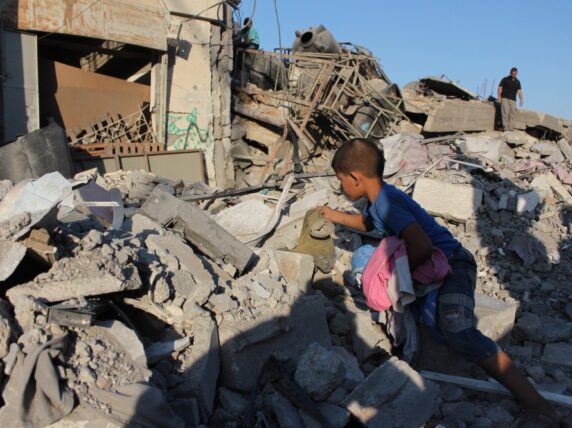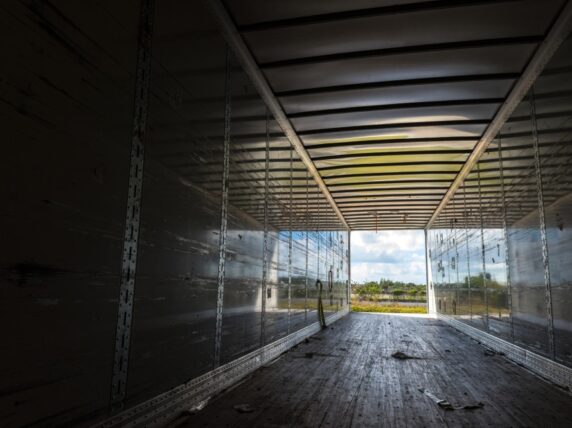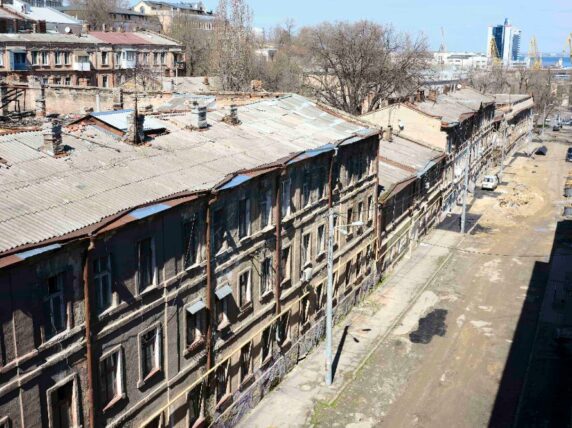9 achievements we’re proud of in 2021
This year is almost behind us, and once again we find our future uncertain.
With the direction of the FCDO still unknown, and a new secretary of state taking over the Official Development Assistance (ODA) portfolio after two brutal rounds of UK aid cuts, as well as multiple ongoing crises engulfing the globe, it’s been a tough year – and we potentially face another difficult one in 2022.
However, what this year has reminded us of is that as a sector, time and time again we will rise to the challenge, be it holding the government to account for how it spends ODA or working together to understand what locally-led development and equity, diversity and inclusion looks like in practice. At Bond, we’re proud of the work we’ve done with all of you.
Here are nine things we’re proud of this year.
Chairing the Civil Society 7 (C7), and getting results from the G7
In June, we convened civil society groups around the world to agree what we wanted to see G7 leaders deliver regarding vaccine equity, climate change and open societies in the C7 communiqué, ahead of the G7 Summit in Cornwall.
As well as securing and facilitating C7 engagement with the Cabinet Office, we took the C7 delegation to the Summit and coordinated media responses from the sector as the G7 announcements came through, landing extensive coverage across national and global press, and calling G7 leaders out for failing to deliver on vaccine equity and climate change.
The C7 carried out several press briefings in advance of the Summit. Stephanie Draper, Bond’s CEO, also had the opportunity to land our main policy asks directly with both the chancellor and prime minister to emphasise our key points.
Thanks to a robust C7 communiqué and behind the scenes advocacy work by Bond and our members, the sector did secure commitments in some key areas, including open societies and anti-racism in the final G7 leaders’ communiqué
We challenged the FCDO merger and UK aid cuts with a rapid and robust response
Bond and our members were at the forefront of the condemnation surrounding the DFID and FCO merger and the cuts to ODA. We sustained media pressure on the government around the UK aid cuts throughout the year, including coordinating business groups, academia and NGOs to co-sign a letter to then-foreign secretary Dominic Raab. The letter was secured more than 1,000 signatures from individual organisations and was picked up as an exclusive story on the BBC the weekend before the G7 Summit.
We used our key advocacy tool, “A Force for Global Good“, to benchmark the newly formed FCDO’s performance and hold the government to account for how they spend ODA.
And we helped ensure parliamentary scrutiny of how ODA is spent continued by successfully advocating for the retention of the International Development Committee (IDC) and the Independent Commission on Aid Impact (ICAI).
We also supported the Conservative rebellion to the cuts within the House of Commons.
We sought to protect open societies and human rights
In 2021 we continued to advocate for the promotion and protection of civic space both in the UK and overseas in the run-up to G7. We successfully influenced the language of the G7 Leaders’ Communiqué , the Open Societies Statement and the Foreign Minister’s Statement.
We also found strength in numbers and joined other development, peace building and human rights organisations to support Amnesty International’s report “On the Human Rights Frontline” which called for more attention to be paid to protecting human rights defenders – 94% of whom said they were threatened as a result of their work around the world.
In May, we launched our joint report, Campaigning During Coronavirus, which showcased successful UK campaigns during the pandemic and highlighted the value of campaigning as well as what works, in an increasingly challenging campaigning environment.
We formed a partnership with the Police Bill Alliance to push back against the legislation which threatens our right to campaign and protest and have landed extensive media coverage flagging to MPs and peers, the media and the public why this piece of legislation is so alarming and what needs to be done.
We worked with more than 90 sector CEOs in our Getting Comfortable Talking About Racism sessions, set up three cohorts of CEOs to embed anti-racist ways of working across NGOs, and launched our report – Racism, power and truth: Experiences of people of colour in development – and our new training course, Building inclusive cultures. We also set up a People of Colour working group.
This work led us to giving evidence to the IDC inquiry on the philosophy and culture of the UK aid sector, which resulted in their sub-inquiry on racism in the UK aid sector.
Last but certainly not least, we adopted and shared an internal guide to help decolonalise and depoliticise our language, and have (and will continue to) encourage the sector to do the same.
We drove progress on locally-led development
This year was a big one for our work on locally-led development. Firstly, we identified key transitions that the sector will need to contend with over the next 10 years in our widely read Transitions Report.
We worked with the sector to diagnose the systemic challenges needed when moving towards locally-led development for UK NGOs and shared them in our next report, Catalysing locally-led development in the UK aid system. Bond also launched the first event in our “Future Dialogues” series that looks to challenge the current “aid and development” system. Our first event focused on Global Public Investment as a proposed alternative model, as explored by Solange Baptiste, Jonathan Glennie and Nikolai Hegertun.
And we set up three working groups to support the sector to make practical progress towards a locally-led future – sector commitments and a roadmap for locally-led development; changing donor policy and practice and supporting practice for locally-led development.
We equipped leaders with tools to create a safeguarding culture
This year we launched the safeguarding leadership tool, which supports leadership teams and boards to have conversations about the culture they need to ensure the safety of the communities they work in, their staff and volunteers. More than 40 CEOs and 90 practitioners joined us for the launch, and we have recruited CEO champions to advocate for the use of the tool.
Subscribe to our newsletter
Our weekly email newsletter, Network News, is an indispensable weekly digest of the latest updates on funding, jobs, resources, news and learning opportunities in the international development sector.
Get Network NewsWe also continued to represent the sector on safeguarding – pushing for continued momentum, including sign-up to key schemes like the inter-agency misconduct scheme and presenting evidence to the International Development Committee.
We were a strong voice for the sector
Our media team landed coverage on critical issues facing the humanitarian and development sector including Covid-19, the FCO and DFID merger, UK aid cuts, safeguarding and G7, securing coverage repeatedly in the likes of PA, Reuters, the BBC, the Guardian, the Mirror, the Independent, the Daily Mail, the FT, the Times and the Telegraph.
As hosts of the All-Party Parliament Group on the UN Global Goals for Sustainable Development, Bond secured media coverage for their recent report, Saving resources: Actions to achieve both climate goals and the Sustainable Development Goals, in the Metro, Evening Standard and across climate press.
We published 112 blogs, which were viewed 91,000 times across 2021, with authors from across the world, sharing their perspectives on some of the most pressing issues affecting people around the work.
We had 29,000 post-engagements on Twitter and grew our audiences on all the different social media platforms, reaching more people than ever before.
We brought the sector together and increased learning
This year we delivered 50 events with more than 4,000 attendees from 89 countries, featuring topics ranging from building agile organisations to embedding wellbeing practices in our organisations. We featured speakers that were made up of 25% Black, Asian and ethnic minorities and 54% female.
We ran 72 courses, trained 1,234 participants, and trained staff of 354 organisations, all fully facilitated online. On top of this, 86% of participants said they were successfully applying what they learned three months after the training.
The Learning from Consortia programme brought 13 UK Aid Connect consortia together to find out what makes consortium effective. We helped produce more than 10 knowledge products from our findings.
We supported our working groups to learn, advocate and transform the sector
It has been a busy year for our fantastic working groups. We revitalised our HR Working Group to respond to Covid challenges in the workplace, championed the work of small NGOs during the cuts to UK aid programmes, and the Disability and Development Group continues to hold FCDO to account for their disability inclusion strategy.
The Bond Mental Health and Psychosocial Disability Group published their excellent briefing paper Covid-19 and mental health and the Conflict Policy Group have developed a helpful Build Back Better policy briefing on conflict prevention and peacebuilding in a Covid-19 context.
The Child Rights Group (CRG) continues to do impressive work with FCDO to inform their work on child marriage.
We’re incredibly proud of everything we’ve done this year with our colleagues and members, and look forward to working with you all in 2022.




